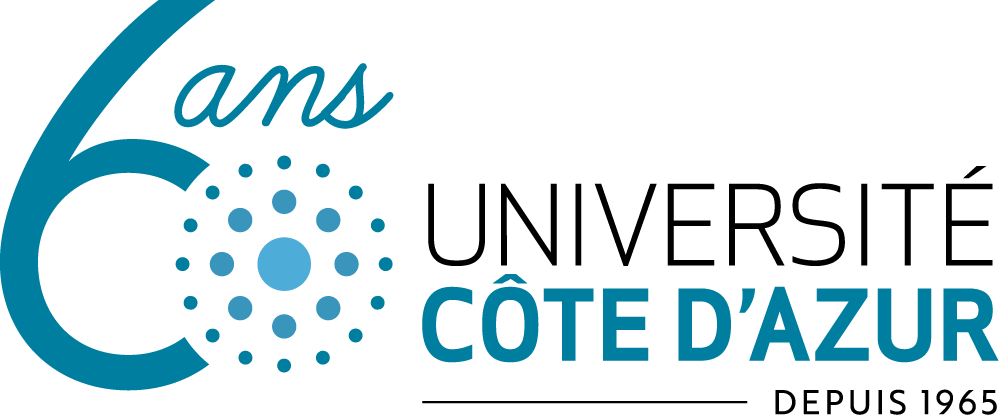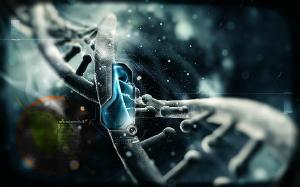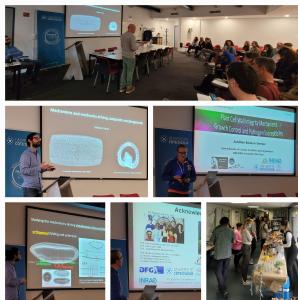Académie d'Excellence "Complexité et diversité du vivant"
CANCELLED : Selective Immunotherapy & Kidney Transplant - Academy 4 Seminar Series #17 - IPMC - June 17th, 2025 noon
- Research
- Science and society
- IDEX
- International
- Health
- Education
- Sustainable Development
on the June 17, 2025
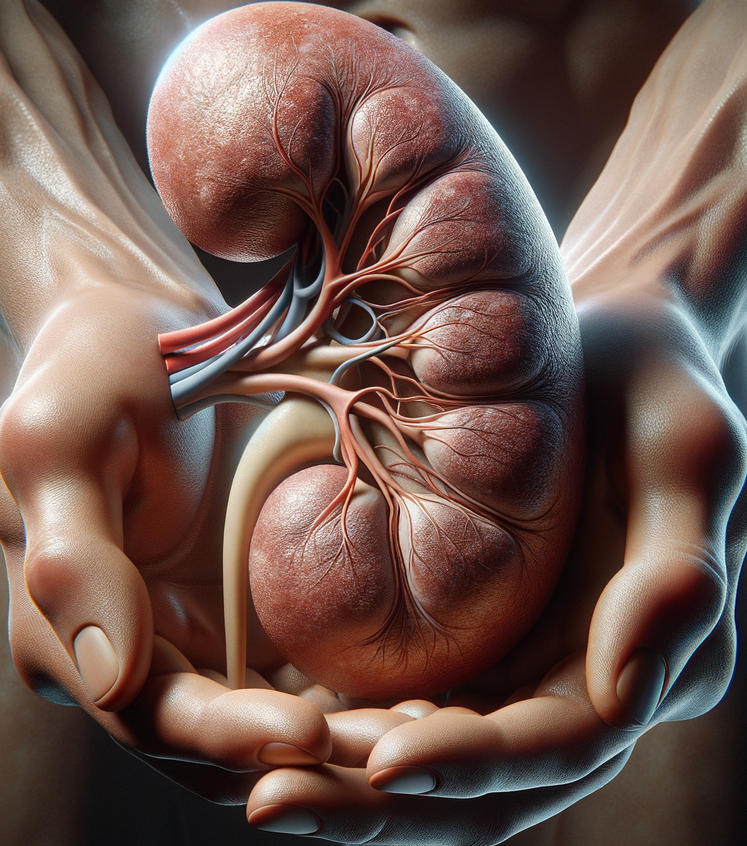
On the 17th of June 2025 at 12 pm (noon), in IPMC conference room, will take place the 17th session of the Academy 4 seminar series entitled
"Selective Immunotherapy and Kidney Transplant"
12pm
"Development of a cytotoxic fusion protein to specifically target anti-HLA memory B lymphocytes"
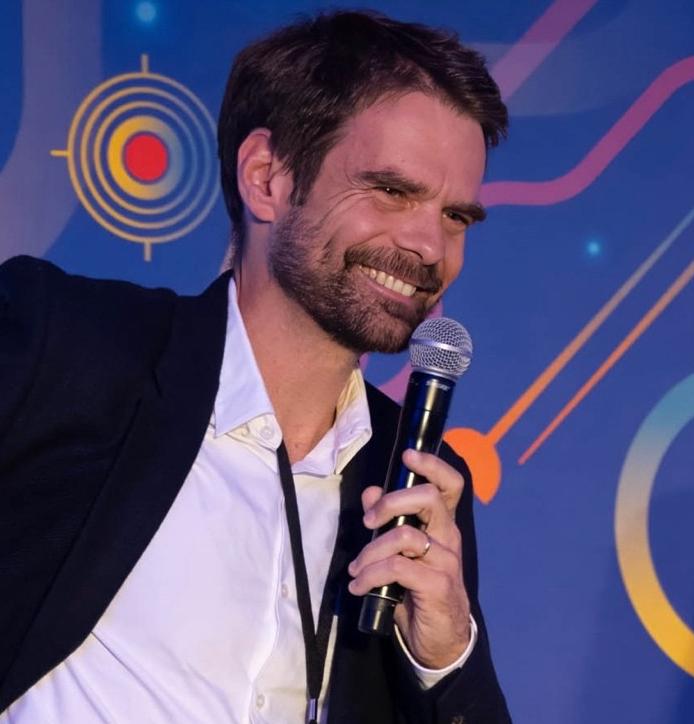
By Dr Antoine SICARD, MD, PhD, HDR, ATIP Avenir Award
Professor of nephrology and transplant immunologist at
Nephrology-Dialysis-Transplantation department NICE University Hospital and LP2M, Université Côte d’Azur, CNRS, UMR7273, NICE FRANCE
sicard.a@chu-nice.fr
Thérapies moléculaires et cellulaires innovantes en Néphrologie et Transplantation - LP2M
Abstract:
Authors:
Filippo Massa1, Scarlette Cassal1, Marion Cremoni1, Sebastian Cuozzo1, Alexandre Gerard1, Vincent Esnault1, Nicolas Glaichenhaus2, Antoine Sicard1
1-Hospital Pasteur, Nephrology, NICE, France, 2-IPMC- Institute of Molecular and Cellular Pharmacology, VALBONNE, France
Background:
The development of new desensitization strategies for highly sensitized patients awaiting transplantation is a priority. In these patients, memory B lymphocytes (B cells) are considered the main source of donor-specific anti-HLA antibodies (DSAs) posttransplantation. Anti-CD20 antibodies are currently used to deplete these cells before transplantation, but they are ineffective against subpopulations with low CD20 expression and increase the risk of infection by targeting all B cells regardless of antigen specificity.
Methods:
To specifically target anti-HLA memory B cells, the researchers developed a dimeric fusion protein consisting of two HLA-A2 molecules linked by the constant fragment of a cytotoxic immunoglobulin. This protein has been further ameliorated with the insertion of different mutations that enhance the cytotoxicity and protect the molecules from IdeSdependent cleavage. As control, a second version of the protein presenting the Ovalbumin as antigen instead of HLA-A2 was also generated. The fusion protein has been used to specifically target anti-HLAA2 producing hybridoma cell line and to treat mice immunized against the two antigens.
Results:
In vitro: The HLA-A2-Ig dimers selectively destroyed hybridomas producing anti- HLA-A2 antibodies in the presence of complement. In vivo: memory B cells specific to HLAA2 and ovalbumin were transferred into wild-type mice. These mice were treated with the dimers alongside Belatacept to prevent cellular responses against the dimers. After stimulation with HLA-A2 and ovalbumin antigens, mice treated with HLA-A2-Ig dimers did not produce anti-HLA-A2 antibodies but did produce anti-ovalbumin antibodies. Conversely, mice treated with ovalbumin-Ig dimers showed the opposite response. This effect is maintained several weeks after re-stimulation with the antigens.
Conclusions:
This approach demonstrates potential for more effective and safer desensitization strategies for highly sensitized patients waiting for transplantation.
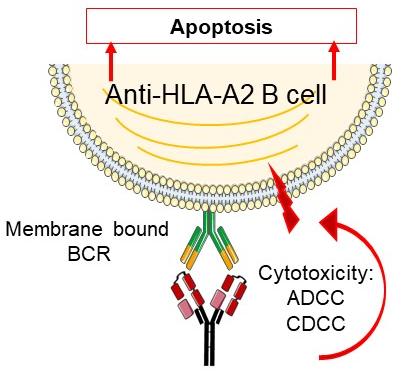
Biography:
Antoine SICARD completed a MD in nephrology and transplantation at PARIS V University in 2013, a fellowship at the CLEVELAND Clinic (OHIO, USA) and obtained a PhD in immunology at LYON 1 University in 2016. He then joined Pr LEVINGS’ laboratory at the University of BRITISH COLUMBIA, VANCOUVER, CANADA, where he completed a postdoctoral fellowship in cell therapy, and developed an immunocompetent mouse model of CAR Treg cell therapy before joining Pr Glaichenhaus’ lab at the IPMC (UMR7275, VALBONNE, France) in 2018. Antoine SICARD currently holds a Professor position (PU-PH) at Université Côte d’Azur in the department of Nephrology, Dialysis and Transplantation of NICE University Hospital and University Côte d’Azur (IDEX label of Excellence), FRANCE. He leads the TNT research team (innovative cellular and molecular Therapies in Nephrology and Transplantation) in the Laboratory of PhysioMolecular Medicine (LP2M, UMR7370, CNRS, Université Côte d’Azur) and is Associate Unit Director of the institute. Antoine Sicard is specialized in transplant immunology, immunotherapy and allogeneic cell therapy and has a solid background in both experimental immunology and clinical research. Among notable achievements, he was awarded the Marie CURIE grant from the European Commission (H2020), the Canadian Institutes of Health Research fellowship award (ranked First among 647 candidates), the ATIP-AVENIR award from INSERM/CNRS and the funding of IDEX Academy of Excellence 4 when he moved back to NICE in 2021. His overall research goal is to develop new immunotherapy and allogeneic cell therapy strategies to improve outcomes in the field of autoimmune diseases, end-stage organ failure, transplantation and oncology.
Keywords:
kidney transplantation, antibody-mediated rejection, desensitization, immunotherapy, cell therapy, chimeric antigen receptor T cells
--------------------
1pm
Discussion and buffet hosted by the Academy of excellence 4 "Complexity and Diversity of the Living Systems"
ORGANIZERS:
Academy of Excellence 4 "Complexity & Diversity of the Living Systems"
PARTNERS
Graduate School and Research LIFE - Life and Health Sciences
Graduate School and Research HEALTHY - Health Science EcosystemsAcademy of Excellence 5 "Human Societies, Ideas and Environments"
Institute NeuroMod - Cognitive Systems, Normality and Pathology of the Human Brain and Computational Neurosciences
Photo from https://easy-peasy.ai/ai-image-generator/images/detailed-anatomical-kidney-illustration-clear-hand-view
